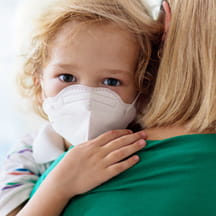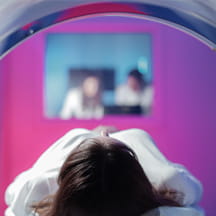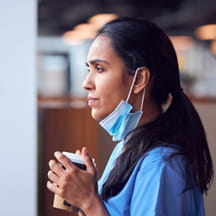While testing for and treating COVID-19 patients remains a high priority for the U.S. health care system, one children's hospital is focusing on helping those already in the recovery stage of the virus.
"As we saw the pandemic unfolding and more information was coming out about pediatric cases, we thought it would make sense for us to start a multi-disciplinary clinic to get a really good look at children post-COVID and provide them with multi-disciplinary care," says Melissa Trovato , M.D., interim medical director of rehabilitation, Kennedy Krieger Institute in Baltimore, Maryland. "Our goal is to help them get back to being kids, and that's really what pediatric rehabilitation is all about-getting kids to live as functional and normal lives as possible."
Previous experiences drive multi-disciplinary rehabilitation approach
Kennedy Krieger launched its COVID-19 rehabilitation clinic in early July and addresses patient needs across multiple disciplines, including occupational and physical therapy, speech-language pathology, behavioral health and assistive technology. An initial evaluation determines the severity of the patient's condition and whether rehabilitation services on an outpatient, day program or inpatient basis are most appropriate.
Trovato says it is challenging to develop a rehabilitation protocol for a relatively new illness that can cause such a wide range of symptoms, so it's important for her team to lean on its knowledge. "The great thing about being in pediatric rehabilitation is that we can draw from our experience," Trovato says. "There might not be a one-treatment-fits-all solution, but as we assess children, it will drive what the care will look like in standardizing protocols."
There are three specific areas of expertise that will help inform the post-COVID rehabilitation protocols, according to Trovato:
- Intensive care unit (ICU) patients. She says Kennedy Krieger cares for a lot of children coming off prolonged ICU stays, which provides insight into rehabilitation for respiratory function as well as the effects of extended bed rest on physical conditioning.
- Behavioral health. Helping children cope with trauma and the associated effects of post-traumatic stress disorder, depression or anxiety.
- Nervous system. Although brain and spinal injuries are different than COVID-19, Trovato says both affect many of the same systems in the body, so children may require similar rehabilitation care to regain full functionality.
Telehealth plays major role in care locally and nationally
The nature of the ongoing pandemic presents another set of hurdles in launching a new clinic-social distancing and infection control guidelines make it difficult to see patients. Fortunately, Kennedy Krieger already had a robust telehealth program in place, according to Trovato. Virtual visits not only allow the clinic to safely see more patients but also to evaluate patients from around the country.
"Our assessment can help place their care closer to home," Trovato says. "We can come up with a plan, and we have a resource-finder network that will help a family find providers closer to home-we really try to package as much together as we can."
Trovato says she believes Kennedy Krieger's COVID-19 rehabilitation clinic is the first such facility in the U.S. dedicated to pediatric patients. So, while they can directly assist remote colleagues by virtually evaluating patients and helping them establish rehabilitation programs in their hometowns, the goal for Trovato and her team is to help inform protocols across the health care system.
"Research and education are part of the Institute's mission-it's a big part of what we do," Trovato says. "We want to share what we're seeing with our colleagues so we can make the same informed decisions and provide the same standard of care."


